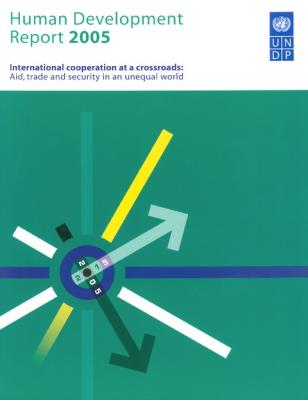Human Development Report 2005
Human Development Report 2005
January 3, 2005
This 2005 Human Development Report takes stock of human development, including progress towards the MDGs. Looking beyond statistics; it highlights the human costs of missed targets and broken promises. Extreme inequality between countries and within countries is identified as one of the main barriers to human development—and as a powerful brake on accelerated progress towards the MDGs.
The report suggests that the world’s governments are faced with a choice. They can start a decade for development with the financial resources, technology and capacity to end poverty or we could have a human development failure. “Business as usual” will not allow fulfilling the promises and the commitments made in 2000. The cost of this failure will be measured in human lives, increased inequalities, violations of human rights and threats to peace.
International aid, one of the most effective weapons in the war against poverty, needs to be renovated and reshaped. It should be thought as an investment as well as a moral imperative. In this respect, three conditions for effective aid are:
- sufficient quantity;
- better quality (delivered on a predictable value for money basis,with low transaction cost); and
- country ownership.
Highlights
- A comprehensive overview of international development assistance, looking at both its quality and quantity;
- A critical review of progress in the “Doha Development Round” of trade negotiations, highlighting how unfair trade rules reinforce inequality;
- Evidence of the human development costs of violent conflict, and a review of strategies for conflict prevention.

 Locations
Locations





